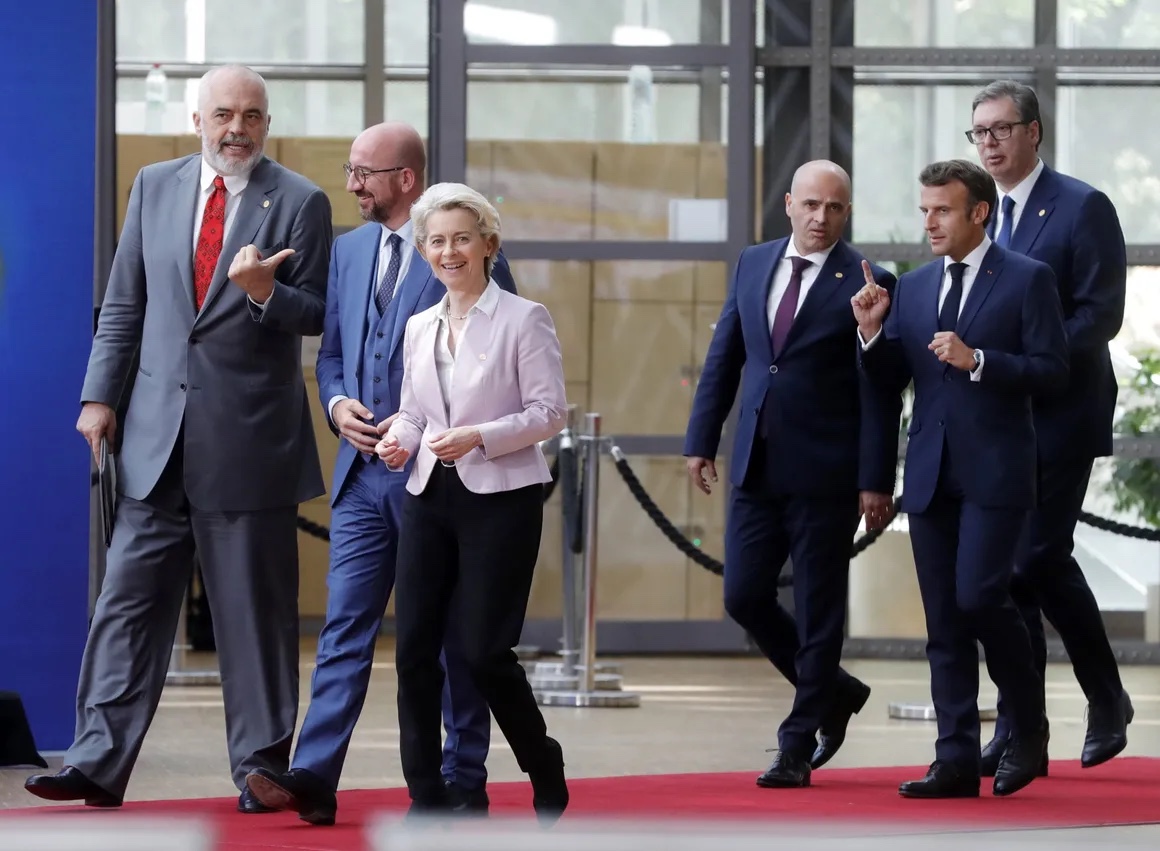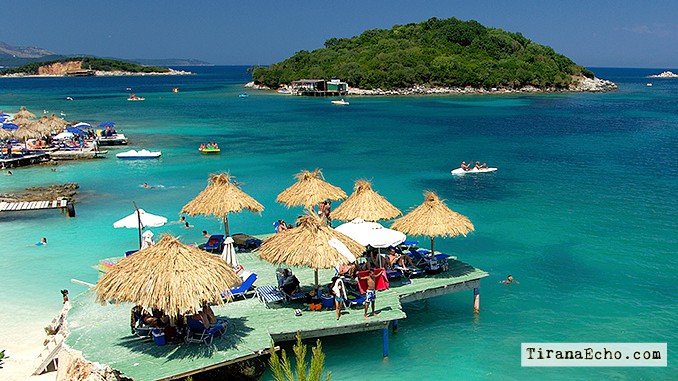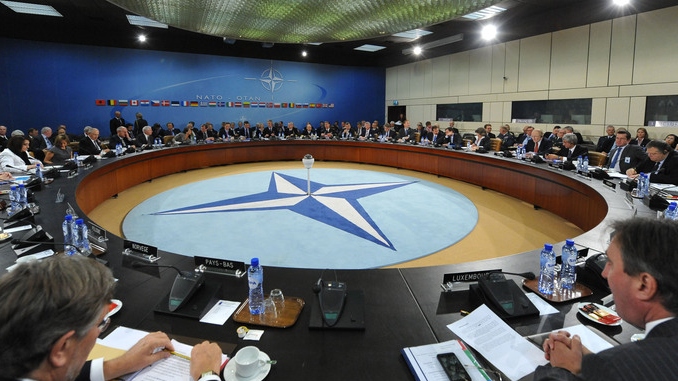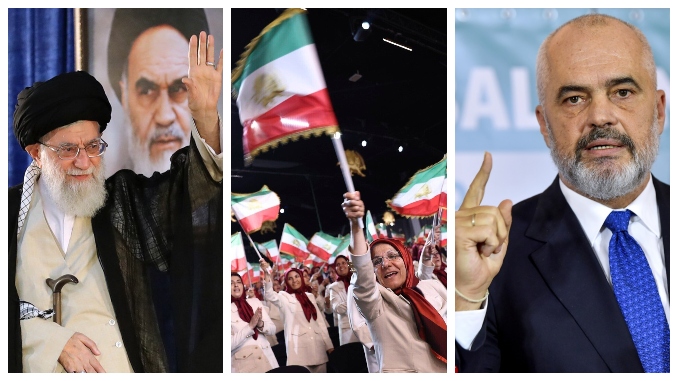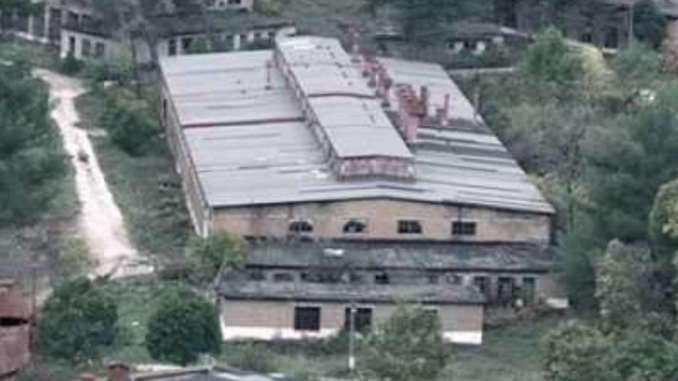The current Kosovo’s issue – by Giancarlo Elia Valori
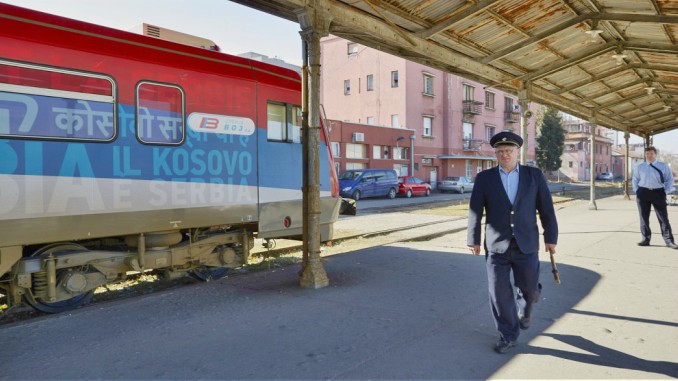
As from January 14 until a few days ago, a Serbian train was stationing on the Kosovo border. The train is decorated with letters that read “Kosovo is Serbian” in various languages, as well as with a series of figures and insignia of the Orthodox religion and Serbian nationalism. Kosovo’s authorities have so far blocked the train march along the 213 km line from Belgrade to Mitroviça, a city with a Serb majority located within Muslim Kosovo.
The political and military tension is already very high: Serbia can count on an armed force of about 60,000 well-trained and armed soldiers, while the Kosovo security forces can reach a maximum size of 6,000 units. As is well-known, the peace agreement between Serbia and Kosovo dates back to twenty years ago: it was reached after the NATO bombing of the Serbian capital, Belgrade. Today, almost all Western countries recognize Kosovo’s independence, with the exception of Russia and China, which believe that the region is an integral part of Serbia.As, indeed, is still enshrined in the current Serbian Constitution.
It is worth recalling that the Dayton Agreements (or, more precisely, the General Framework Agreement for Peace) of November 1995 envisaged a strategic architecture foreboding countless problems, as often happens when you build States and even peoples in a bureaucratic way.
The Dayton Agreements provided for the establishment of a Croat-Muslim Federation, accounting for 51% of the pre-agreement national territory, as well as 92 municipalities and Republika Srpska, which is sovereign over the remaining 49%.
The two entities are largely autonomous but, as the Agreements read, they are placed “within a unitary State framework”.
A vague phrase and, once again, foreboding strategic and geopolitical dangers we can easily imagine.
The Presidency rotates every eight months by alternating a Serb, a Croat and a Muslim Head of State.
As often happened – and this applies also to Italy – the peace reached after the US victory led to fully dysfunctional political and constitutional systems, with internal mechanisms of block and overrepresentation not even allowing the normal functioning of the institutions.
Obviously this weakens forever the State that lost the war or the nation which is “engineered” in such a way as to block any decision or postpone it indefinitely.
Republika Srpska is also equipped with an autonomous single-chamber Parliament, while the Croat-Muslim Federation is characterized by a two-chamber legislative Assembly.
Therefore, every four years, 42 members are elected, 28 of whom are voted by the Federation and the remaining 14 by the Serbs, while the “House of Peoples” counts 5 Serbs, 5 Croats and 5 Muslims.
Hence clear overrepresentation of Balkan Islam and an equally clear political mechanism punishing the Serb population, as well as a State political apparatus made on purpose to be ineffective and dysfunctional.
Furthermore, between 2012 and 2015, at least 250 Muslims from Bosnia-Herzegovina alone moved to the Middle East to wage the jihad – a significant number considering that the total population amounts to 3,800,000 people.
Weapons of war are still widespread and Islamist and jihadist terrorist groups are mostly concentrated in mountain villages.
Bosniac media speak of at least 64 paradzemate, namely autonomous jihadist and terrorist groups spread over peripheral villages and mountains.
Furthermore the President of Republika Srpska, Milorad Dodic, is currently under investigation on charges of money laundering, but he has scheduled a referendum in 2018 to declare the Serbian side’s independence.
Kosovo is a country with one of the highest rates of political corruption in the world, while the Serbs present in the Kosovo Republic have recently been authorized to have large territorial autonomy from EU supervisors.
With the Western winners’ silly nationalistic engineering, the crazy Balkan wars of the 1990s have created a powder keg which is bound to burst at any moment.
In Macedonia, a notoriously corrupt government has exacerbated tensions with the local Albanian minority, accounting for approximately 25% of the population, who wants to achieve independence through the federalization of Macedonia and, in the future, of all the Balkan States created by the ill-omened Dayton Agreements.
Albanians, as well as Muslims, are everywhere in the Balkans.
Applying the criterion of ethnic or religious status means no longer set logical or territorial limits to the Balkan hyper-fragmentation.
In Croatia, the United States has supported the local armed forces against the Serbian Krajina’s military, in a geopolitical cupio dissolvi that – instead of rebuilding a strong Serbia, capable of acting as a bulwark against jihadist Islam – has generated a long series of small and irrelevant ethnic republics – often religion-based – thus creating the tension which is currently emerging in the Balkans.
The same holds true for Kosovo, where the US support was in Albanians’ favour.
Why? If the United States had blocked the smuggling of weapons on the border between Kosovo and Albania, by condemning the violence of Kosovo’s forces and the equally harsh violence of the Serb forces, the agreement would have been easier and more stable.
Once the US threat to bomb the region had become clear, the Serbian population of Kosovo was left alone and unarmed, in the grip of violence perpetrated by KLA and the other Kosovo-Albanian paramilitary organizations.
Pain and fear are still a recent memory, embedded in the minds of many Serbs and other groups that have been inevitably underrepresented in the mad Western post-Yugoslav system of divide and rule.
Therefore, the first and – we could say – the last war, waged by the United States in their new role as single global superpower, has led to an irrational and unstable situation.
It seems that today “humanitarian” wars are no longer fought to define a new strategic balance, but to perpetuate instability and military conflicts in the places in which they occur.
Just think of the Lebanon – which is now a long-standing case of “geopolitical usucapion” – or of Central Africa.
Where we reason in terms of “stabilization forces”, certainly stabilization is reached, but it is the stabilization of the military, humanitarian and geopolitical crisis we initially wanted to solve.
Hence making the Balkans porous, pervious and unstable – possibly to destabilize also the EU in the future and give the whole region to Islamism – was certainly not a good idea.
Furthermore, at the time, although being opposed to ethno-religious separatism, Russia did not want to fully support the Orthodox and Slavic Serbia, for fear that the separation of Serbs from the rest of former Yugoslavia favoured the application of the same principle to Chechnya.
Conversely, Turkey fully supported the US stabilization of the region, which favoured the Islamists and, in particular, brought peace to Turkey’s main economic axis to penetrate the EU.
Certainly, after Daesh-Isis’ siege of Mosul, many jihadist foreign fighters will go or come back to the Balkans, namely the closest, most Islamized and most unstable Eurasian region, as well as a buffer between a weak and listless European Union and the new great Islamic political-military ummah which is being built.
Salafism is also increasingly widespread in the Balkans, lavishly subsidized by Saudi Arabia. Until the late 1990s, thousands of jihadists went to fight, in Kosovo and Croatia, to defend their fellow Islamists in many post-Yugoslav wars.
So far approximately 900 Albanian, Croat and Bosnian jihadists have gone to fight in Syria and Iraq and about 300 of them have already come back and – as we can easily imagine – will not stand with their arms folded.
Last year a video developed by Daesh-Isis “advertised” a Balkan “regional caliphate”, calling Albanian and Bosniac militants for the jihad.
The reduction of rights and territories of the Serbian and Slavic Orthodox Christians – namely the target of many recent Balkan wars – was only aimed at reducing the Russian influence in the region, but gave us the Bosnian-Albanian jihad.
In my opinion, it is not a brilliant result.
Reverting to the Serbian train, in all likelihood, if it gets across the Kosovo border, it will be attacked by Kosovo security forces. Hence the casus belli – that the Serbs are seeking to redefine borders to their advantage, as well as to take back Albanian Republic’s regions which, inter alia, are traditionally Serbian – will materialize.
It should also be noted that Kosovo’s Parliament is currently discussing whether and when to build a real army.
Currently its Security Forces consists of 2,500 soldiers with light weapons and 800 reservists.
On the contrary, Kosovo’s politicians think of a real armed force with 5,000 soldiers and 3,000 reservists.
Certainly Kosovo’s new military will not stay idle and will undoubtedly facilitate the Salafist penetration and help the networks of jihadists coming back from Syria and Iraq.
Hence, after ending operations in Syria, the next permanent destabilization region will be the Balkan Islamic, Kosovo, Bosnian and Croat region.
This will lead to currently unimaginable pressures on the EU, which will have a huge reservoir of jihadists at its side, who will surely close the buffer area between the European Union and Central Asia, as well as definitively destabilize the continuity between Europe and the Russian Federation.
Moreover, China itself will be locked in its “passage to the West” with the Belt and Road Initiative, which will stop where desired by the jihadists who occupy the “middle region” between the EU and Eurasia.
It is currently hard to imagine the economic, strategic and geopolitical impact of the Balkans’ future destabilization, but I fear it will be huge, thus distorting Europe’s military and strategic posture, as well as its economic development.
Meanwhile, instead of blindly following the US “policy line” in the Balkans – well remembering Bill Clinton’s big statue in the Kosovo’s capital, Pristina – the EU should think about a strategy, including a military one, to face the current crisis of all Balkan countries.
Source: ModernDiplomacy.eu
Giancarlo Elia Valori
Advisory Board Co-chair Honoris Causa
Professor Giancarlo Elia Valori is an eminent Italian economist and businessman. He holds prestigious academic distinctions and national orders. Mr Valori has lectured on international affairs and economics at the world’s leading universities such as Peking University, the Hebrew University of Jerusalem and the Yeshiva University in New York.
He currently chairs “La Centrale Finanziaria Generale Spa”, he is also the honorary president of Huawei Italy, economic adviser to the Chinese giant HNA Group and member of the Ayan-Holding Board.
In 1992 he was appointed Officier de la Légion d’Honneur de la République Francaise, with this motivation: “A man who can see across borders to understand the world” and in 2002 he received the title of “Honorable” of the Académie des Sciences de l’Institut de France

